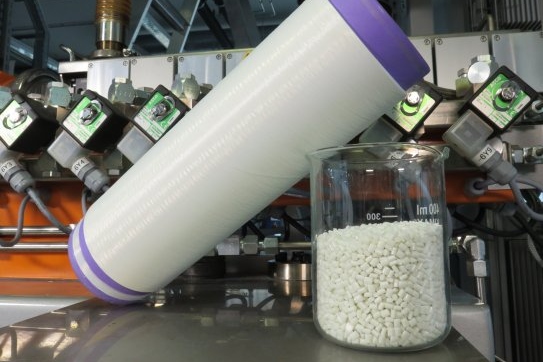
DITF to upscale MEG produced from CO2 emissions
YarnsandFibers News Bureau 2023-03-13 13:50:35 – GermanyThe German Institute of Textile and Fibre Research (DITF) in Denkendorf is striving to scale up monoethylene glycol (MEG) produced from CO2 as a component of polyester as part of the €22 million Threading CO2 initiative, which was unveiled this January.
The company that created the technology for converting CO2 emissions into MEG, Fairbrics SAS, with headquarters in Paris, is in charge of leading the Threading CO2 initiative, which unites 13 partners from seven different nations.
The money will be used to upgrade Fairbrics technology in part, first in a pilot line that can produce 100 kg per day by 2024 and then, by 2026, in a demo plant that can produce one ton per day.
By synthesizing polyesters, spinning them into fibers, and then further processing them, DITF Denkendorf is attempting to move the project "from molecule to material" at its laboratories in Germany. This is done in order to determine whether the performance and quality of the new polyester are comparable to those of conventional polyester.
Simon König, deputy head of the competence center for chemical fibers and nonwovens at DITF, said that this is a completely new approach, because it not only directly prevents the release of CO2 into the atmosphere but also adds value.
The fibers and textiles will next be processed by project partners Faurecia and Les Tissages de Charlieu into car seats and clothes so that the quality can also be evaluated in the finished product. The DITF will also examine the goods' future ability to be recycled. The CO2-based polyester will also receive security tagging to guard against product theft.
Market Intelligence
Ask for free sample Report

experience
Customer Base
dedicated team
Countries Served Worldwide









